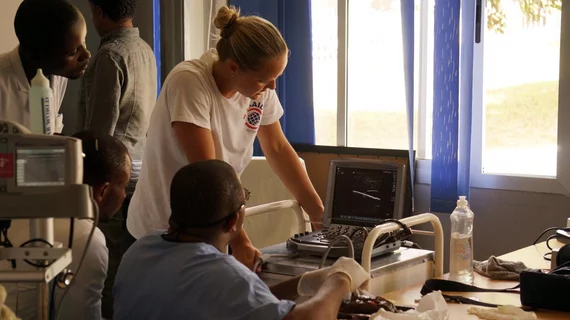2 imaging orgs to spread ultrasound access around the world and over the long haul
Something like 50 million people in 10 parts of the developing world stand to experience a bounce in quality of healthcare in coming years thanks to a major new aid project co-led by two large nonprofits with expertise in medical imaging.
Under the partnership, U.S.-based Rad-Aid will contribute know-how in delivering patient care and user training in poor and remote areas. For its part, Netherlands-based Philips Foundation, backed by Royal Philips, will supply diagnostic and point-of-care ultrasound equipment, telemedicine resources and various POCUS services.
In an announcement posted Sept. 13, Philips says the program will center on remote “train-the-trainer” techniques to disperse ultrasound expertise within recipient populations. The training will consist of curricular as well as hands-on instruction.
Meantime ultrasound experts working in high-resource areas, including radiologists and ultrasound technologists, will guide student trainers via voice, video and texting.
In this way, first-generation healthcare workers will learn for themselves as they mentor new generations of ultrasound experts in their own and neighboring communities.
“This innovative and ambitious initiative has a remarkable reach and is both sustainable and scalable,” Rad-Aid president and CEO Daniel Mollura says in the announcement.
Philips Foundation director Margot Cooijmans adds that modern medical imaging is out of reach in many parts of the world “despite the well-known benefits of early detection and timely treatment. … Enhancing technology to improve healthcare for underserved populations defines this collaboration and is at the heart of our mission.”
Philips Foundation says the new work is of a piece with its broad mission to open access to high-quality healthcare for 100 million underserved people a year by 2030.
The two organizations will spread the new effort across regions of Africa, Asia, North America, Latin America and the Caribbean.
Read the full announcement here. Learn more about Rad-Aid International here and Philips Foundation here.

